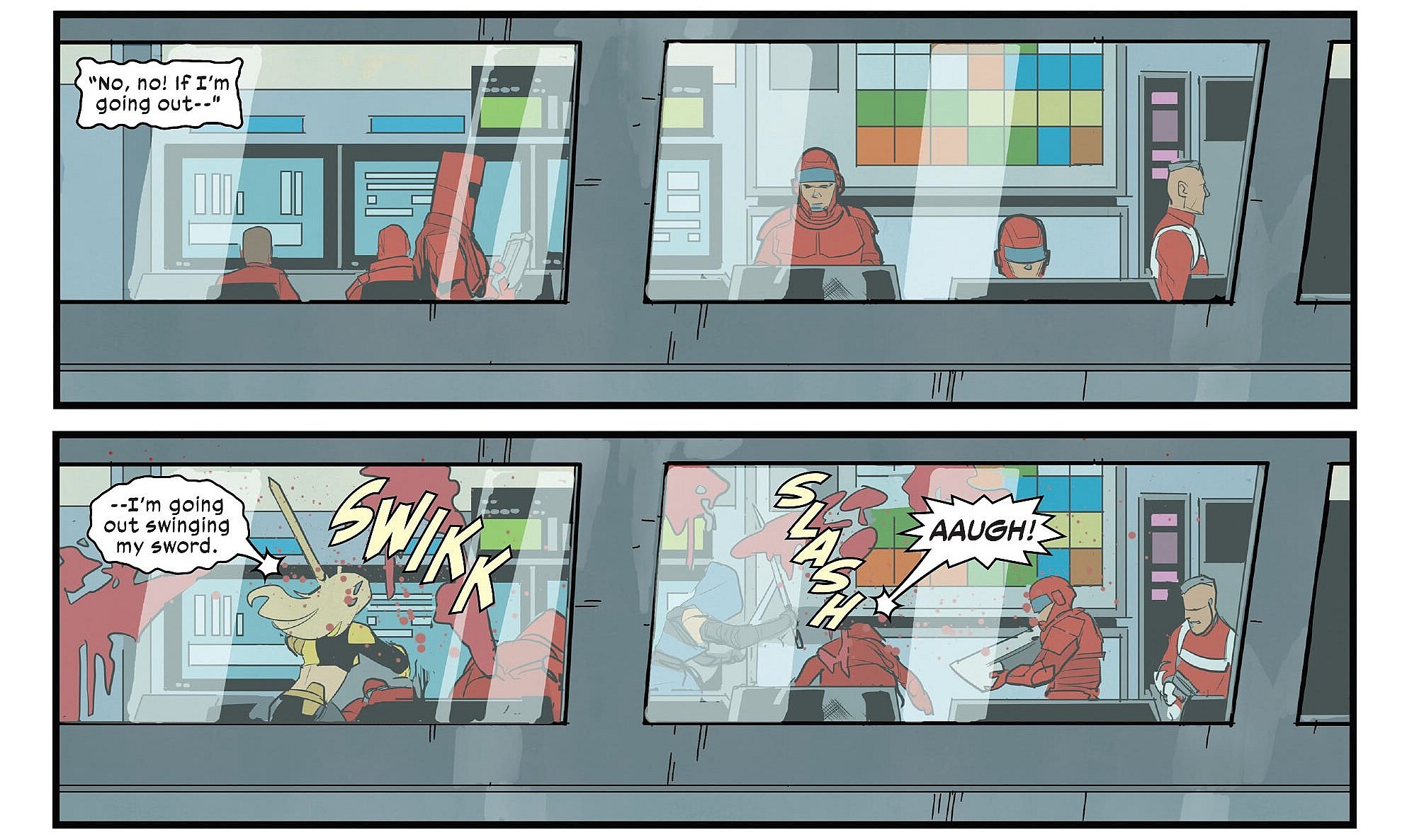Marvel Comics X-Men Editor Defends Criticism Of Mutants’ Bloodlust During Krakoa Era: “I Tend To Subscribe To The Idea That Super Heroes Are Intended To Embody A Higher Morality Than That”

Despite receiving pushback for his recent criticisms, current Marvel Comics X-Men line editor Tom Brevoort is standing by his belief that one of the biggest narrative failings during the team’s Krakoa Era was their portrayal as gleeful and wanton killers.

As previously reported, asked by a fan as to whether or not he intended “to make your tenure on the X-Men less morally gray than they’ve been written as for the last 45 years?”, Brevoort opined “My philosophy boils down to this: I don’t think that the X-Men should be casual or gleeful killers.”
“While they have certainly been in situations where lethal force was called for and appropriate over the years, I don’t think that this should be their default setting,” he argued via his personal Substack blog, Man With A Hat. “And one of my big complaints about the end of the Orchis War was in how readily and even joyfully some of the X-Men murdered their foes. That’s fine for some characters—nobody is going to question Wolverine killing a bunch of people (though I feel that even he has certain rules of engagement which he will honorably try to follow). But seeing Nightcrawler teleport a couple of hapless Orchis goons into deep space and leave them to die just felt wildly out of character and wrong to me.”
“If our heroes are going to be heroes, then they have to be held to a higher standard than that,” Brevoort posited. “We said it a lot back in DEATHLOK thirty-plus years ago: you’ve got to do what’s right, not what’s easiest. I’m sure that we’ll have plenty of moral grey area that we can explore, but I do think that the days when the X-Men would casually throw around lethal force and laugh about it thereafter are over now.”

Fast forward two weeks, and Breevort has yet atgain been pressed by a fan to explain his position regarding the recent kill count of Marvel’s Merry Band of Mutants.
In the most recent entry into his aforementioned blog, the X-editor was asked by a fan to detail how he would have specifically written the aforementioned teleporter considering he “had just witnessed, all at once, his species murdered, displaced, imprisoned, psychologically and physically tortured, experimented on, mutilated, brainwashed, depowered, enslaved and put into camps.”
“It’s easy to preach how you wouldn’t have Kurt killing,” they posited, “but bless the writers who decided to put some stakes and pressure into a rushed event out in order to not have ANOTHER AvX-level fiasco.”

Straight forward in his response, Brevoort in turn asserted, “I wouldn’t have written him as suddenly being an unrepentant killer after years of him being the X-Man who most held all life sacred.”
“But beyond that, I tend to find the larger argument here totally slanted by those who use it,” he wrote. “I heard a lot of this kind of sentiment over the years from Zack Snyder fans who try to convince me that Superman breaking the neck of Zod in Man of Steel was a necessary and inevitable action.”
“And I think it’s off-base for a couple of very simple reasons,” Brevoort opined. “1) These are stories, which means that all of the rules of engagement are controlled by some writer somewhere pulling the strings. So there isn’t any no-win scenario possible except when a writer contrives to make it so. And 2) we’ve published fifty years of comic book stories in which Nightcrawler has overcome far more potent enemies that a bigot with a gun without needing to toss them into a void to their deaths. So clearly it is possible for him to do so.”
“The only reason for him not to do so is a desire for revenge and catharsis on the part of the character, the creators and the readers—and I don’t think that particular catharsis is a healthy thing. I tend to subscribe to the idea that super heroes are intended to embody a higher morality than that, and if they just go around killing anybody they don’t like, they cease to be heroes and instead become the kinds of people that they’re fighting and killing. There must always be a line.

To this end, Brevoort then asserted, “Even Wolverine has a line, though some writers in recent years have overlooked it.”
Offering up a page from Uncanny X-Men Vol. 1 #140 in support of his arguments, wherein the team’s resident berserker explains to Nightcrawer that he “never used my claws on someone who hadn’t tried to kill me first”, the editor detailed “Here, Logan explains under what conditions he feels that it’s appropriate to use lethal force against his foes, and it’s a set of rules that make sense for that character.”
“But even then, Nightcrawler doesn’t agree with Wolverine’s philosophy,” he pointed out. “His position is more hardline on this issue, and he makes no bones about saying so.That’s part of what makes characters different and the stories interesting.”

bringing his thoughts on the matter to a close, Brevoort ultimately declared, “You are certainly welcome to disagree with any or all of this. But it’s my X-Line now, and that means at least for the time being, the X-Men are going to kill only when it is absolutely necessary and there is no other option available to them.”
“And as much as possible,” he concluded, “we’ll try to see the after-effects of those instances when somebody is killed, so that the taking of life doesn’t become just a spectacle of bread and circuses.”

NEXT: Review: Marvel Comics Goes For A Freshly Familiar Restart In ‘X-Men #1’
